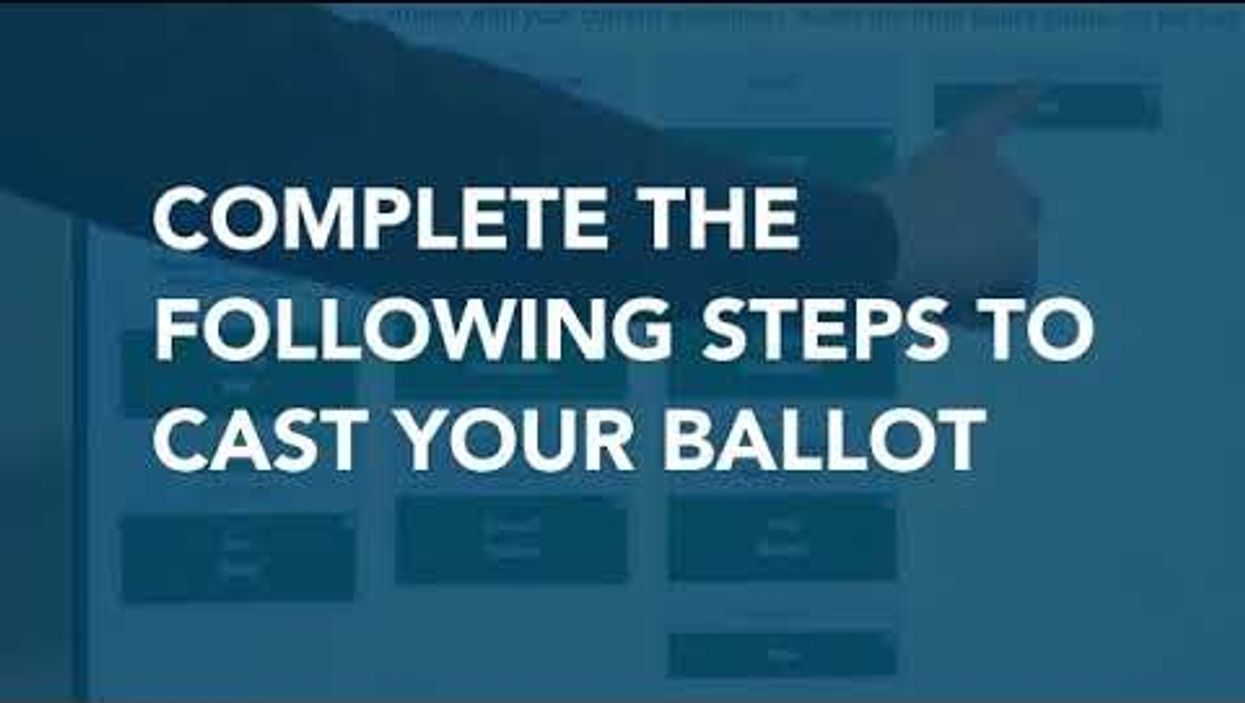UPDATE: The story now includes comment from the machine's manufacturer.
Voting rights groups filed their latest lawsuit on Wednesday, this one alleging new electi on systems being rolled out in North Carolina are not secure and pose a health threat.
Their suit carries significance beyond that state, the plaintiff said, because the equipment at issue is being deployed all across the country. It is called the ExpressVote touch screen machine, and its use is already facing legal challenges in Pennsylvania.
Those bringing the suit in North Carolina labeled the voting system "insecure, unreliable, unverifiable and unsafe."
The Lawyers' Committee for Civil Rights Under Law joined with Free Speech for People, a democracy reform group started in response to the Citizens United campaign finance deregulation ruling a decade ago, in filing the suit in state court in Wake County on behalf of the North Carolina NAACP and several voters.
It says the machines will pose a threat to the accuracy of the results in the 21 counties (out of 100 statewide) where they are supposed to be used in November because they do not create a readable paper record that voters can use to verify their choices have been properly recorded.
Instead, the printout contains a summary of a voter's choices and a barcode, which is scanned to record a vote. The barcode, which contains the actual ballot information, is not readable.
Using the touch screens also could create a health risk for voters because of the coronavirus pandemic, the lawsuit states. "We can't require voters to use machines that can become disease vectors," said John Bonifaz, president of Free Speech for People.
The machines violate provisions of the North Carolina Constitution that require free and fair elections and equal protection, the lawsuit claims.
It asks that the voting machines, made by Election Systems & Software, be decertified by the federal Election Assistance Commission and state officials and that hand-marked paper ballots be used for voting.
Spokeswoman Katina Granger said Thursday the company "stands by the ExpressVote 100 percent." It has been used successfully in thousands of places nationwide and has performed well in post-election audits, she said, and and she disputed the description of the paper receipt as not offering voters confidence their choices had properly recorded.
Both North Carolina and Pennsylvania, with a combined 35 electoral votes, were carried by President Trump last time but are high on former Vice President Joe Biden's take-back list. North Carolina is also expecting one of the closest Senate races in the nation.
Successfully pressing a broad array of litigation in such battlegrounds is key to boosting turnout that Democrats and their allies in the civil rights community see as pivotal to their chances in the fall. Republicans wield power in most of the states and are resisting the lawsuits vigorously.




















Trump & Hegseth gave Mark Kelly a huge 2028 gift